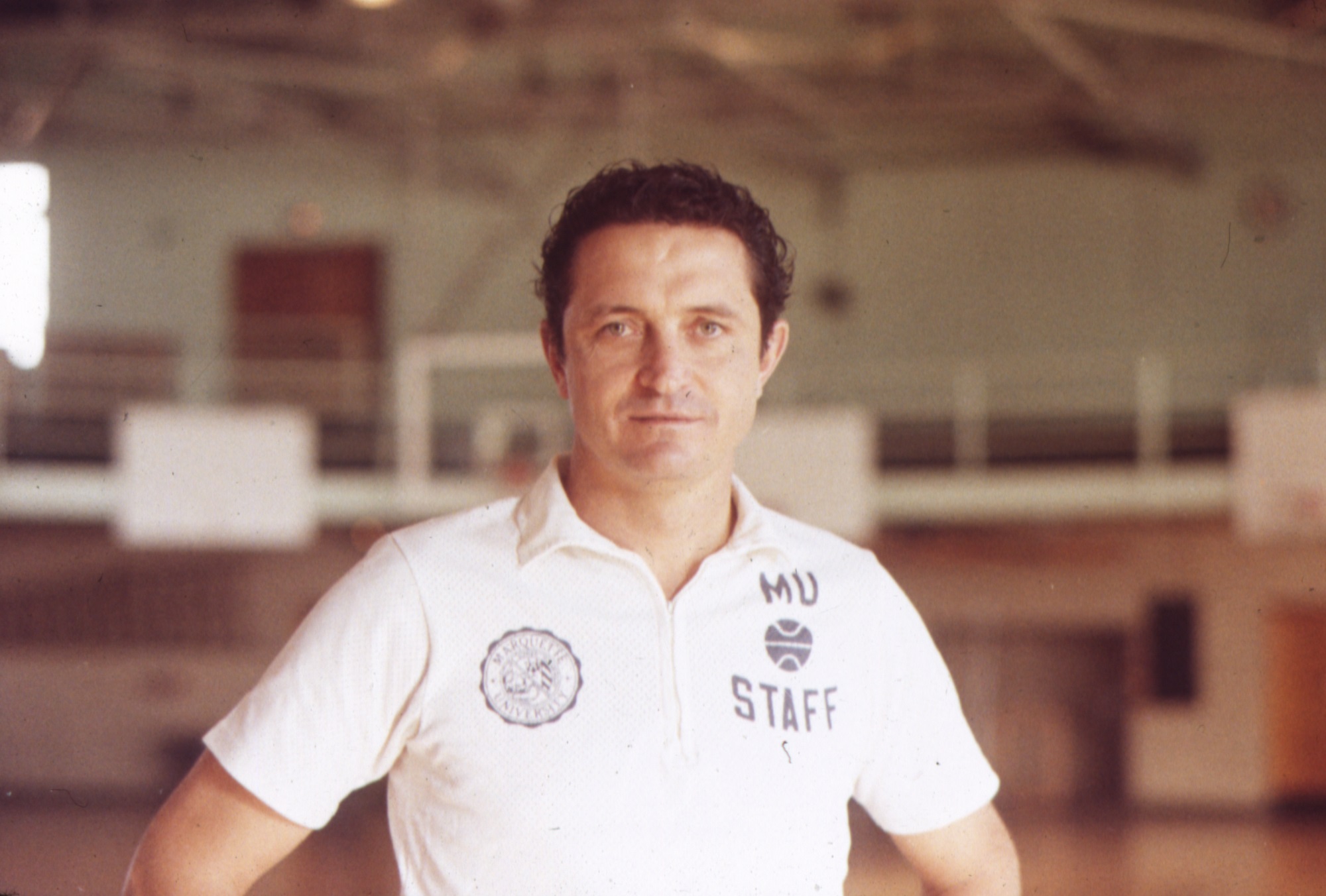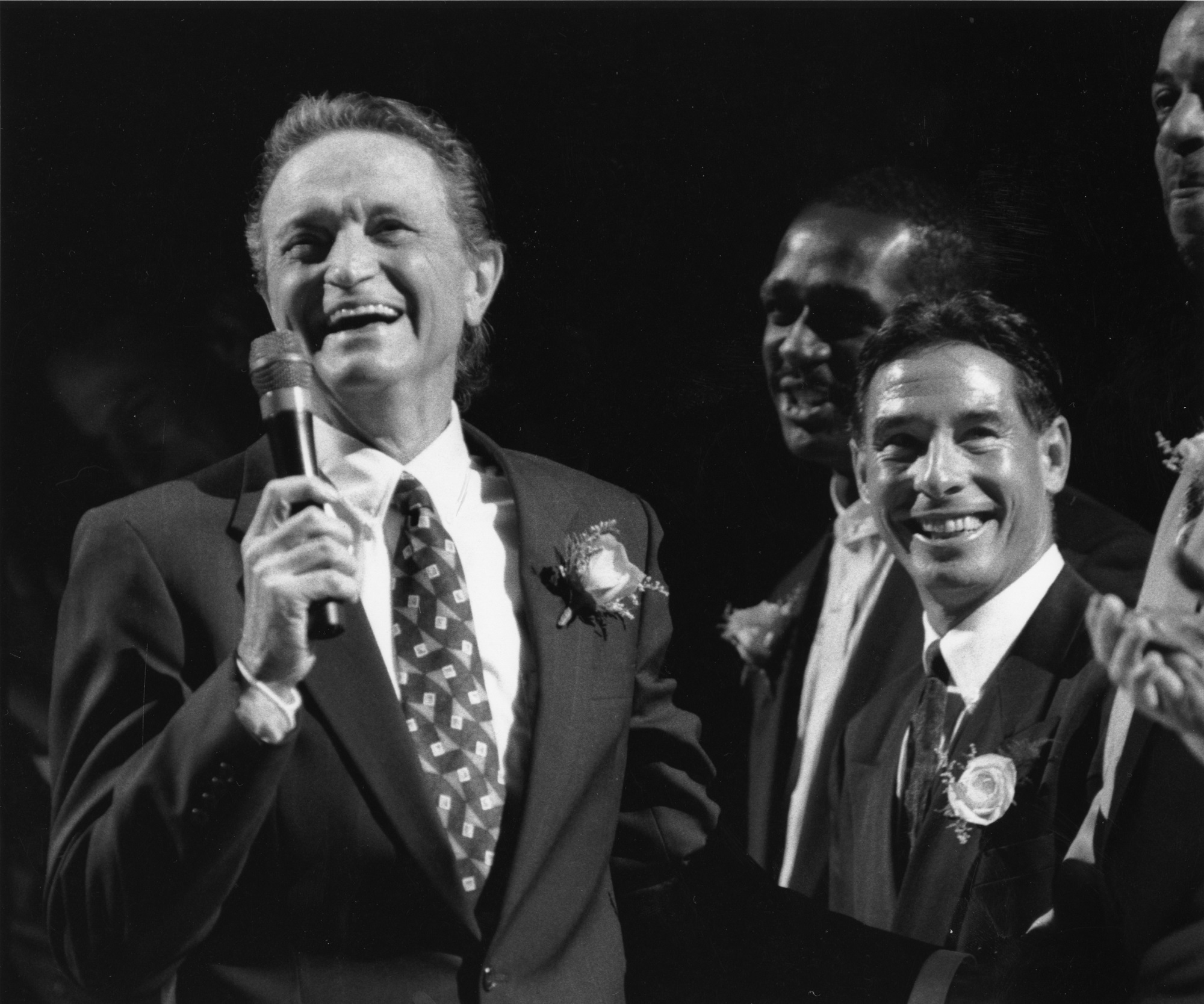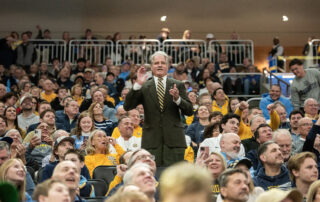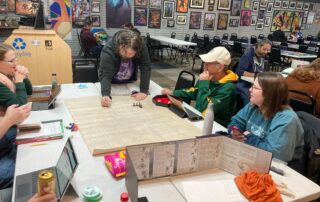The 2023 NCAA basketball tournament is wrapping up, capping a season in which Marquette University men’s and women’s teams both made an appearance. The women’s team lost to South Florida in the first round and the men’s team won one game in the tournament, then fell to Michigan State in the second round.
The occasion brings to mind the late Al McGuire, whose Marquette teams won 79% of their games, including 81 home games in a row.
In 1977, in McGuire’s final game as a coach, Marquette won the program’s only national championship.
McGuire’s legacy transcends sports. The way he looked at the world, the way he expressed himself, made him a true original.
Milwaukee journalist Tom Kertscher, who authored the book “Cracked Sidewalks and French Pastry: The Wit and Wisdom of Al McGuire,” reflects on the coach’s magic with words.
==
As a sports fan growing up near Milwaukee, I admired Al McGuire’s success coaching basketball at Marquette University.
Decades later, I did a book on Al McGuire because he was not your typical sports figure.
Al was funny, acutely attentive to the world around him, and surprisingly sentimental.
His words are worth remembering as March Madness winds down.
*****
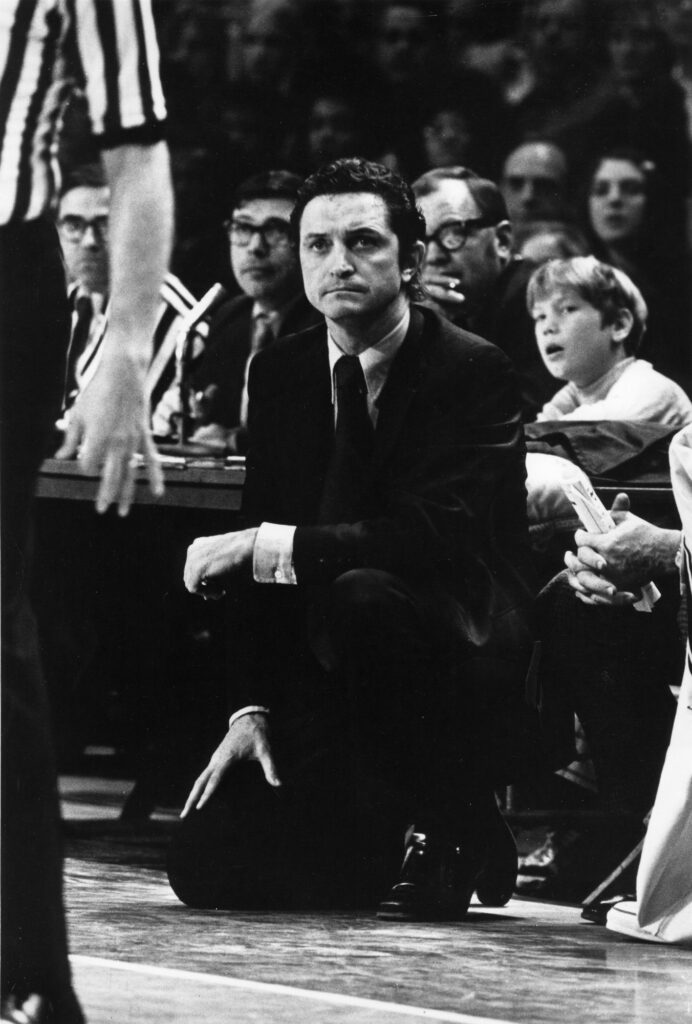
Marquette basketball coach Al McGuire kneels down during a game, 1974-1977. (Courtesy of the Department of Special Collections and University Archives, Raynor Memorial Libraries, Marquette University)
First, Al’s wit. Here are two of his bon mots:
“If the waitress has dirty ankles …the chili is good.”
“The only mystery in life…is why kamikaze pilots wore helmets.”
*****
Yes, Al was a character.
He once described how he took precautions to keep his players out of trouble in Milwaukee.
“We had someone from the FBI talk to us before the season,” Al recalled. “He told us there were three places in town we should declare off-limits. I had been hanging out in two of them.”
*****
Al was a bit of a street philosopher.
Here’s a quote of his that’s fitting for Wisconsin:
“There is a nice feeling at 2 in the morning to see … a beer sign. It’s somewhere you can place a bet, or have an affair, or play a jukebox or whatever.
Of all the places I know on Earth, it seems to be … the most wholesome.
You’re not walking into anything that you have to prep yourself for. When you go in, you know what’s there and what’s expected of you. If you want to join in, you can. If you want to slip down to the end of the bar and cry in your beer, you can do that, too.”
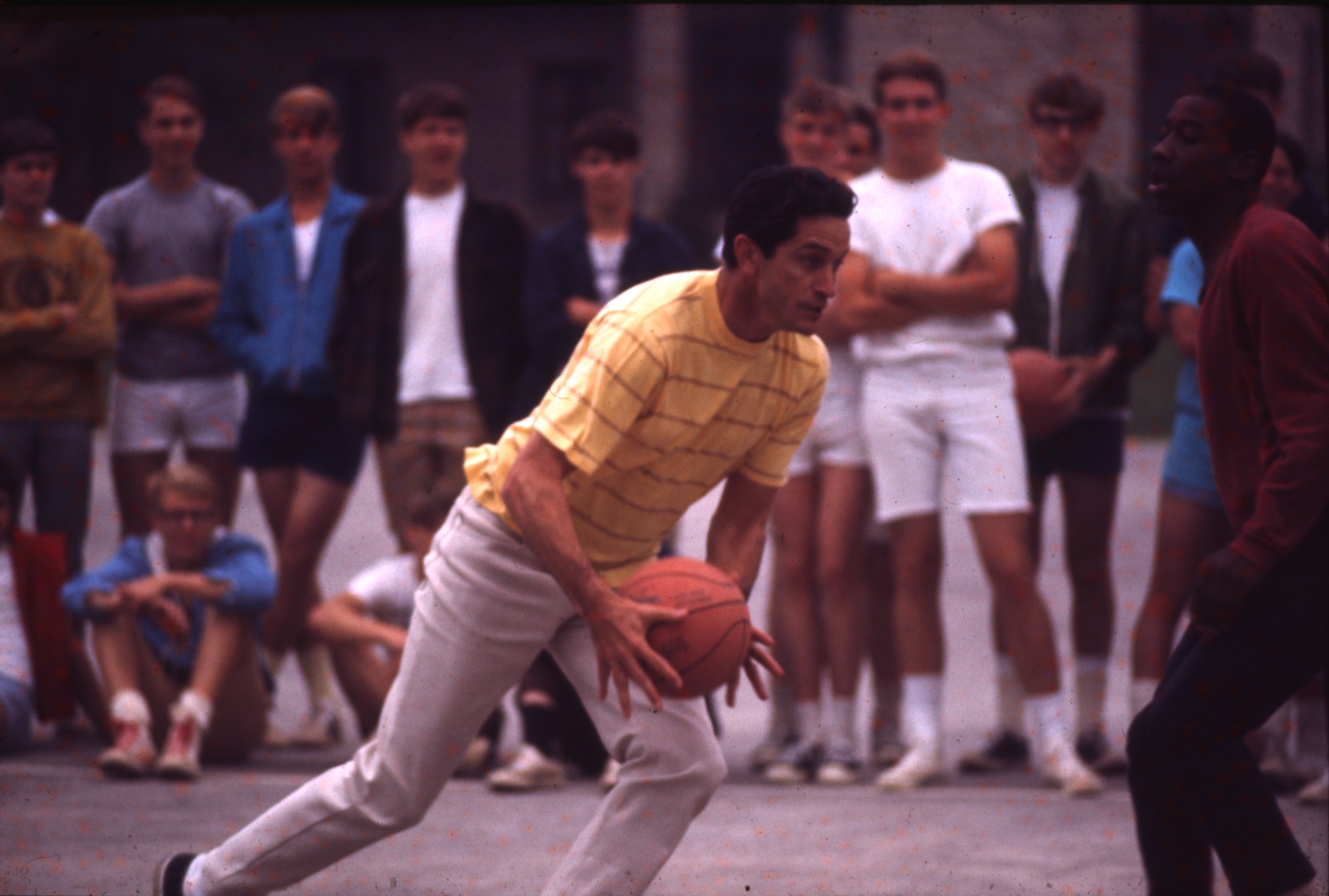
Al McGuire runs with basketball in 1969 or 1970. (Courtesy of the Department of Special Collections and University Archives, Raynor Memorial Libraries, Marquette University)
*****
Perhaps my favorite quality of Al’s was that he embraced his sensitive side.
Like when he talked about what he expected of his team.
“I see either roses or weeds,” Al said. “It’s definitely going to depend upon if the players really love each other, or just make believe. It all gets down to love. If we have love, we’ll be good. If we don’t, we’ll be bad.”
Al took time to reflect on life — like how that national championship affected him.
“You get compassion,” he said. “You lose the soot on your face, let your hair grow, put on your beach shoes. You lose your obnoxiousness, your surliness. The game isn’t everything because you become more intelligent. You see more.”
*****
Al McGuire passed away in 2001. He had some observations near the end, too.
“The doctors tell me that when I start to cough, it’s pretty much over for me in three days. So I don’t cough.”
“There’s this big, gray elephant in the room and nobody wants to talk about it. But I know.”
But Al would go out with a smile:
“I’m moving towards the dancing lights,” he said. “Dancing lights and a soft landing.”
